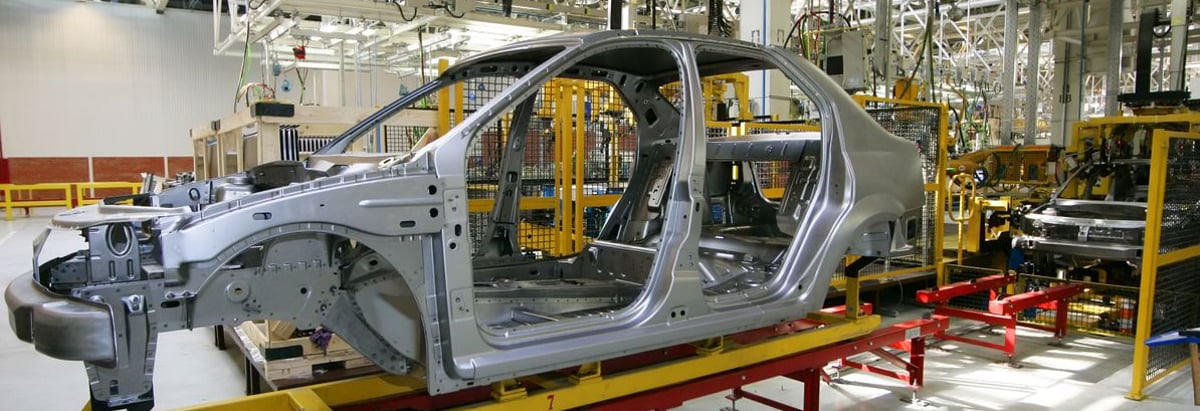Stock Analysis

The external fund manager backed by Berkshire Hathaway's Charlie Munger, Li Lu, makes no bones about it when he says 'The biggest investment risk is not the volatility of prices, but whether you will suffer a permanent loss of capital.' So it seems the smart money knows that debt - which is usually involved in bankruptcies - is a very important factor, when you assess how risky a company is. We note that Mitsubishi Motors Corporation (TSE:7211) does have debt on its balance sheet. But the real question is whether this debt is making the company risky.
What Risk Does Debt Bring?
Debt is a tool to help businesses grow, but if a business is incapable of paying off its lenders, then it exists at their mercy. In the worst case scenario, a company can go bankrupt if it cannot pay its creditors. However, a more frequent (but still costly) occurrence is where a company must issue shares at bargain-basement prices, permanently diluting shareholders, just to shore up its balance sheet. Having said that, the most common situation is where a company manages its debt reasonably well - and to its own advantage. The first thing to do when considering how much debt a business uses is to look at its cash and debt together.
See our latest analysis for Mitsubishi Motors
What Is Mitsubishi Motors's Net Debt?
As you can see below, at the end of March 2024, Mitsubishi Motors had JP¥463.9b of debt, up from JP¥400.0b a year ago. Click the image for more detail. But on the other hand it also has JP¥674.2b in cash, leading to a JP¥210.3b net cash position.
How Strong Is Mitsubishi Motors' Balance Sheet?
The latest balance sheet data shows that Mitsubishi Motors had liabilities of JP¥1.18t due within a year, and liabilities of JP¥234.8b falling due after that. On the other hand, it had cash of JP¥674.2b and JP¥397.2b worth of receivables due within a year. So its liabilities total JP¥338.6b more than the combination of its cash and short-term receivables.
This deficit isn't so bad because Mitsubishi Motors is worth JP¥733.7b, and thus could probably raise enough capital to shore up its balance sheet, if the need arose. But it's clear that we should definitely closely examine whether it can manage its debt without dilution. Despite its noteworthy liabilities, Mitsubishi Motors boasts net cash, so it's fair to say it does not have a heavy debt load!
While Mitsubishi Motors doesn't seem to have gained much on the EBIT line, at least earnings remain stable for now. When analysing debt levels, the balance sheet is the obvious place to start. But ultimately the future profitability of the business will decide if Mitsubishi Motors can strengthen its balance sheet over time. So if you're focused on the future you can check out this free report showing analyst profit forecasts.
But our final consideration is also important, because a company cannot pay debt with paper profits; it needs cold hard cash. Mitsubishi Motors may have net cash on the balance sheet, but it is still interesting to look at how well the business converts its earnings before interest and tax (EBIT) to free cash flow, because that will influence both its need for, and its capacity to manage debt. Looking at the most recent three years, Mitsubishi Motors recorded free cash flow of 30% of its EBIT, which is weaker than we'd expect. That's not great, when it comes to paying down debt.
Summing Up
Although Mitsubishi Motors's balance sheet isn't particularly strong, due to the total liabilities, it is clearly positive to see that it has net cash of JP¥210.3b. So we don't have any problem with Mitsubishi Motors's use of debt. There's no doubt that we learn most about debt from the balance sheet. However, not all investment risk resides within the balance sheet - far from it. These risks can be hard to spot. Every company has them, and we've spotted 3 warning signs for Mitsubishi Motors (of which 1 is concerning!) you should know about.
If you're interested in investing in businesses that can grow profits without the burden of debt, then check out this free list of growing businesses that have net cash on the balance sheet.
New: Manage All Your Stock Portfolios in One Place
We've created the ultimate portfolio companion for stock investors, and it's free.
• Connect an unlimited number of Portfolios and see your total in one currency
• Be alerted to new Warning Signs or Risks via email or mobile
• Track the Fair Value of your stocks
Have feedback on this article? Concerned about the content? Get in touch with us directly. Alternatively, email editorial-team (at) simplywallst.com.
This article by Simply Wall St is general in nature. We provide commentary based on historical data and analyst forecasts only using an unbiased methodology and our articles are not intended to be financial advice. It does not constitute a recommendation to buy or sell any stock, and does not take account of your objectives, or your financial situation. We aim to bring you long-term focused analysis driven by fundamental data. Note that our analysis may not factor in the latest price-sensitive company announcements or qualitative material. Simply Wall St has no position in any stocks mentioned.
Have feedback on this article? Concerned about the content? Get in touch with us directly. Alternatively, email editorial-team@simplywallst.com
About TSE:7211
Mitsubishi Motors
Engages in the development, production, and sale of passenger vehicles, and its parts and components in Japan, Europe, North America, Oceania, the rest of Asia, and internationally.

